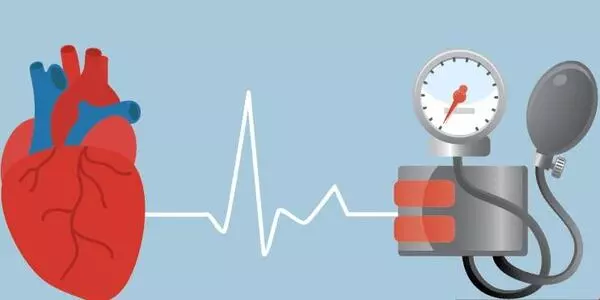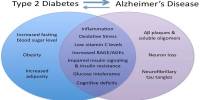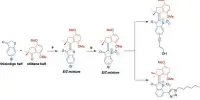Federal regulators have approved the new drug Leqvio for use in some people to help lower cholesterol levels. The medication is intended to be used in conjunction with statins and a healthy diet. Leqvio is meant to be taken twice a year, which experts believe will help people stick to a medication schedule.
PCSK9 inhibitors are the second most commonly used class of cholesterol-lowering medications after statins. These highly effective agents assist the body in removing excess cholesterol from the bloodstream; however, unlike statins, which are available as oral agents, PCSK9 inhibitors can only be administered as shots, posing barriers to their use.
A new study from University Hospitals (UH) and Case Western Reserve University School of Medicine describes an orally administered small-molecule drug that reduces PCSK9 levels and lowers cholesterol by 70% in animal models. The findings, published in Cell Reports, represent a previously unknown strategy for cholesterol management and may have implications for cancer treatments.
Cholesterol levels can almost always be reduced with a combination of diet and exercise, as well as medications. Your risk of developing cardiovascular disease (CVD), including disease of the blood vessels supplying the heart (coronary artery disease), brain (cerebrovascular disease), and limbs, decreases as your level falls (peripheral vascular disease). As a result, your chances of having a heart attack or stroke are reduced. Even if you already have established CVD, it’s not too late to lower your risk.
Cholesterol lowering is one of the most important therapies we have to prolong life and protect people from heart disease, which is still the number one cause of morbidity and mortality in the Western world.
Jonathan S. Stamler
“Cholesterol lowering is one of the most important therapies we have to prolong life and protect people from heart disease, which is still the number one cause of morbidity and mortality in the Western world,” said Jonathan S. Stamler, MD, senior author, President, Harrington Discovery Institute at UH, Robert S. and Sylvia K. Reitman Family Foundation Distinguished Professor of Cardiovascular Innovation, and Professor of Medicine and Biochemistry at UH and Case Western Reserve School of Medicine.
“Statins only lower cholesterol so far. This is a drug class that we think would represent a new way to lower cholesterol, a new way to hit PCSK9.”
A high cholesterol level can significantly increase your risk of developing chest pain, heart attack, and stroke. Fortunately, a number of effective treatment options are available.
While total cholesterol was once the primary focus, current guidelines emphasize low-density lipoprotein (LDL) cholesterol. Higher LDL cholesterol levels are linked to an increased risk of heart attack, stroke, stenting or coronary bypass surgery, and death. Lowering LDL cholesterol has been shown in studies over the last 50 years to reduce the risk of these cardiac events. Triglycerides, another type of cholesterol, have also been linked to an increased risk. High-density lipoprotein (HDL) cholesterol, on the other hand, is associated with lower risk, though studies have suggested that changing HDL is not a way to reduce risk.

Study Findings
Central to cholesterol regulation are LDL receptors, which sit at the surface of liver cells and remove cholesterol from the blood, thereby lowering serum levels. PCSK9 in the bloodstream controls the number of LDL receptors by marking them for degradation. Therefore, agents that inhibit PCSK9 increase the number of LDL receptors that remove cholesterol.
Nitric oxide is a molecule that is known to prevent heart attacks by dilating blood vessels. In the new study, Stamler and colleagues show that nitric oxide can also target and inhibit PCSK9, thus lowering cholesterol. They identify a small molecule drug that functions to increase nitric oxide inactivation of PCSK9. Mice treated with the drug display a 70% reduction in LDL “bad” cholesterol.
Beyond Cholesterol to Cancer
In addition to having an impact on the field of cholesterol metabolism, the findings may have an impact on cancer patients, as new evidence suggests that targeting PCSK9 can improve the efficacy of cancer immunotherapies.
“PCSK9 not only targets LDL receptors for degradation, but it also mediates the degradation of MHC 1 on lymphocytes, which is used for cancer cell recognition,” Stamler explained. “PCSK9 effectively inhibits your lymphocytes’ recognition of cancer cells. By inhibiting PCSK9, you can improve the body’s cancer surveillance. One day, there may be an opportunity to apply these new drugs to that need.”
















